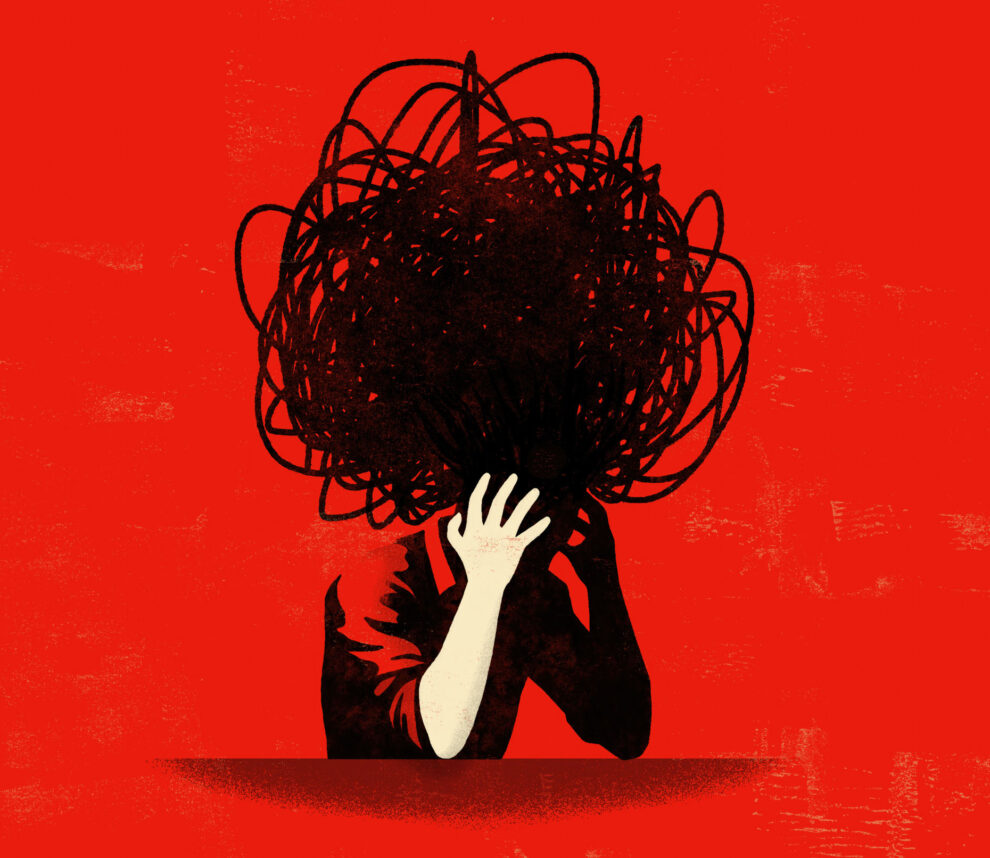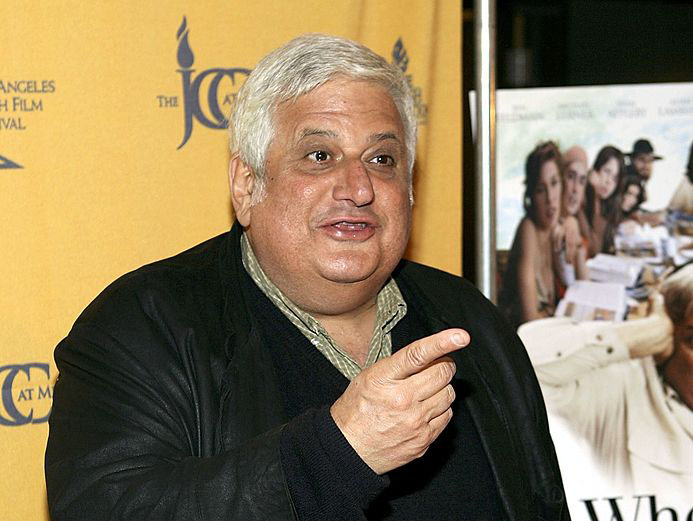 Gil Levanon (left) and Kat Rohrer. Photo by Stefan Seelig
Gil Levanon (left) and Kat Rohrer. Photo by Stefan Seelig The documentary “Back to the Fatherland” examines the odd (and to many, the embarrassing) phenomenon of young Israelis leaving the dreamland of generations of Zionists to settle, work and frequently marry in Germany and Austria — the lands whose people persecuted and murdered their ancestors.
What makes this film particularly surprising is that its co-producers, directors and stars are the granddaughters, respectively, of a Holocaust survivor and a Nazi officer. Austrian Katherina (Kat) Rohrer and Israeli Gil Levanon, both in their 40s, met and became friends while students at New York’s School of Visual Arts. Today, they are joint heads of GreenKat Productions.
The film opens with the pair visiting Levanon’s grandfather Yochanan in his Tel Aviv apartment to break the news that she is considering moving to Berlin. The first reaction of the patriarch and Holocaust survivor is predictable: “No, never,” he exclaims, asserting that the Germans are bad and will always be bad.
Like most grandchildren, Levanon understands but ignores the old man’s advice and heads for the German capital. Teaming up with Rohrer, the two discover that some 20,000 identifiable Israelis now live and work in Germany and Austria. Most are relatively young, secular and artistic. Politically, they tend to be liberal or progressive and are opposed to what they see as a rightward drift in Israel’s government and people.
The filmmakers interviewed Israeli expatriates focusing on their new lives and then filmed their Holocaust survivor grandparents’ reactions to their descendants’ “reverse aliyah.”
One expat in Berlin is Dan Peled, a young sculptor. His beloved grandmother Lea can neither understand nor condone his decision. To change her mind, Dan invites the 91-year-old to join him on a trip to Vienna, the city of her childhood.
Another Israeli, Guy Shahar, settled in the historic Austrian city of Salzburg, married a local woman and has a young son.
Asked about Israelis’ exodus to Germany and Austria, Levanon said many leave because they say that life in Israel is too hard or expensive, while others dislike the country’s steady political move to the right.
“We are very privileged to be able to leave home and experience something else, knowing that we can come back home.”
— Gil Levanon
There is also the desire among young people to explore other countries and people without rejecting their native land. “We are very privileged to be able to leave home and experience something else, knowing that we can come back home because of the amazing things the older generations have done,” Levanon said, adding, with a touch of resentment, “If you are a Jew from Israel, people immediately say that you are abandoning ship and you’ll never go back [to Israel]. I’m not sure that this is true for this generation.”
The 77-minute film is just beginning to circulate in the United States, and reviews have ranged from lukewarm to negative, including that the film jumps too quickly from one character and language to another, so there is some difficulty in following the sequences.
Other criticism, Rohrer and Levanon say, is based on the reviewers’ inability
to deal with a Holocaust- or post-Holocaust-themed films without the mandatory depictions of sadistic Nazis or emaciated Jews.
The filmmakers see themselves as the “third post-Holocaust generation,” Levanon said, “and we are making this film for the fourth and fifth generations, who will live in a world with no actual survivors left.”
“Back to the Fatherland” opens June 28 at Laemmle’s Music Hall in Beverly Hills.























 More news and opinions than at a Shabbat dinner, right in your inbox.
More news and opinions than at a Shabbat dinner, right in your inbox.